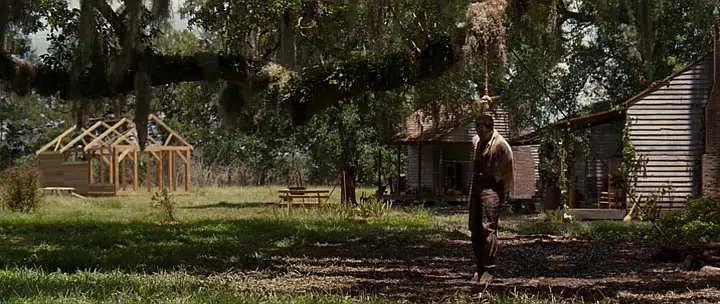THE OTHER STEVE MCQUEEN
After a spate of short films, in 2008 British director Steve McQueen turned to feature cinema - with a vengeance. His films Hunger, Shame and 12 Years A Slave collected massive critical and audience acclaim, culminating in three 2013 Academy Award wins for his last film - including one for Best Picture.
McQueen is a force to be reckoned with, yet his subject matter rarely offers anything in the realm of escapism. His films are about the treatment of Irish hunger striker Bobby Sands, the ordeal of a New York sex addict, and a 19th century slavery tale. Each of these examines the immense suffering of main characters, past and present; yet always with a sense of compassion for all characters involved.
THEMATIC UNEASE
12 Years A Slave starts in 1841 and follows Solomon Northup, a free black man from upstate New York, played by Chiwetel Ejiofor. One unfortunate day, two thugs capture and abduct Solomon, and sell him as a slave. What follows is a violent account of cruelty and struggle, lasting all of 12 years. Throughout, Solomon fails to convince his masters that he is in fact a free man.
As a viewer, I felt uneasy because the argument for Solomon’s freedom seems mostly drawn from the fact that he used to be free man, rather than from the basic human right to be a sovereign being. However, McQueen’s cinema is so powerful that this hardly stands in the way of genuine emotional engagement with the characters, and a thoroughly moving experience. After all, you may read the film as a metaphor for losing something that is very dear to you - while seeing people around you enjoying just that.
SHOW DON’T TELL
The film may be highly stylised, the language in John Hurley’s screenplay retains the flavour of Northup’s original 1853 memoir. In McQueen’s films, though, dialogue often doesn’t matter and the old adage ‘show don’t tell’ rules. The cinematic language is so purely visual that the film is at its best in the scenes with minimal or no dialogue. In this movie moment, dialogue ultimately disappears altogether and we’re left watching the ongoings in an oppressing silence.

HANGING WITH SOLOMON
Solomon is hammering a shack, when his white supervisor Tibeats (Paul Dano, the son in Little Miss Sunshine) reprimands him. Solomon followed all instructions meticulously, so when Tibeats produces a whip, Solomon decides to speak up and fight back, rather than let this double injustice happen. It infuriates Tibeats, and before long the two men roll on the ground wrestling, thus signing Solomon’s fate. Another master intervenes in the fight, and Tibeats vows to have Solomon killed. A few minutes later, Tibeats returns with two others and start the process of hanging Solomon from a tree branch. But they are interrupted, too, when a representative of his master appears. The three are chased away and Solomon now remains half hanging, half standing.
The gorgeous, lush surroundings contrast with Solomon’s ordeal, and as time ticks away his fellow slaves go about their usual routine without barely granting him a look. McQueen holds this wide shot for an insufferably long time, leaving us hanging with Solomon. Not allowing us to escape the grim irony of his experience. Great cinema, the way you don’t really want to see. Cinema at its very best.
Read 12 Years A Slave Screenplay.
And here's How to pronounce actor "Chiwetel Ejiofor" name.
Karel Segers
Karel Segers wrote his first produced screenplay at age 17. Today he is a story analyst, script editor and producer with experience in rights acquisition, script development and production. His
screenwriting classes have trained writers in Australia, Europe, Asia and the Middle East, and his clients include international award-winning filmmakers as well as three Academy Award nominees.
Karel is the founder of
The Story Department and he ranks in the world's Top 10 of most influential people for screenwriting on Twitter.